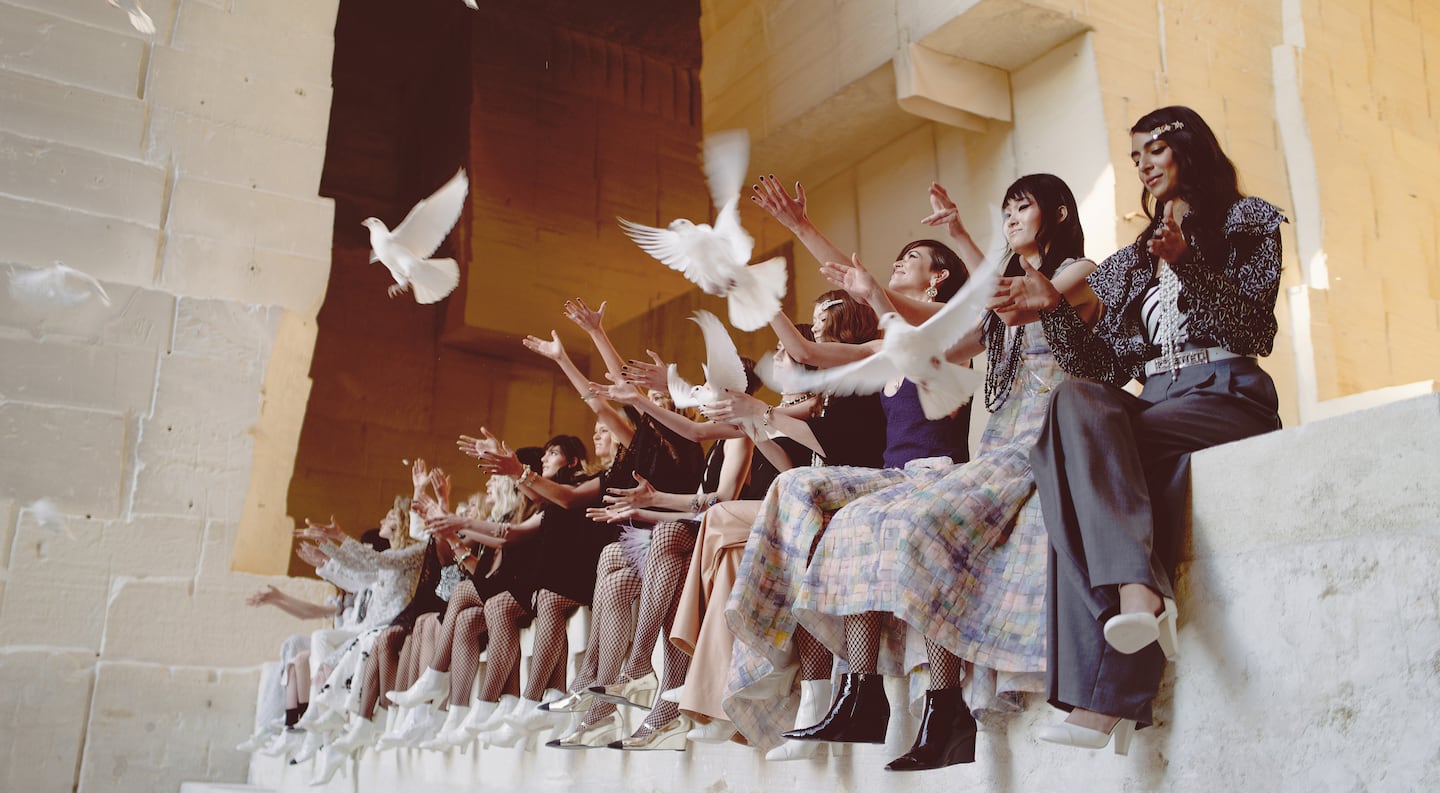
The Business of Fashion
Agenda-setting intelligence, analysis and advice for the global fashion community.

Agenda-setting intelligence, analysis and advice for the global fashion community.

Chanel’s revenue fell by 18 percent last year to $10.1 billion, the French luxury giant said Tuesday, citing a business climate that was “highly disrupted” by store closures and the suspension of international tourism during the Covid-19 pandemic.
The downturn in Chanel’s business was steeper than the declines suffered by top luxury rivals including LVMH, whose fashion division was propped up by persistent consumer appetite for its biggest Louis Vuitton and Christian Dior labels, and Hermès, where demand continued to exceed production capacity for its flagship Birkin and Kelly handbags.
The tumultuous year came as Chanel seeks to write a new chapter following the 2019 loss of Karl Lagerfeld, its creative chief of over 35 years, and the promotion of Lagerfeld’s former right hand, Virginie Viard, to the top design role in a bid for continuity. The company’s operating profit fell by 41 percent to $2 billion in 2020.
But the brand has been quick to bounce back from a difficult year: sales have returned to growth, with revenue rising by a double-digit percentage over 2019′s pre-pandemic levels during the first five months of 2021, chief financial officer Philippe Blondiaux told BoF.
ADVERTISEMENT
Dematerialised and depersonalised is the opposite of what we want to create.
“Since September 2020 we’ve seen a fantastic momentum, which further accelerated this year,” Blondiaux said.
Consumers have flocked back to luxury’s biggest and most prestigious brands since stores reopened after the first round of coronavirus lockdowns last spring, spurring the recovery of iconic names like Chanel while smaller players continued to fall behind.
Chanel was among the brands to aggressively raise prices during the pandemic, increasing the cost of popular handbags by between 5 and and 17 percent last May (the brand cited exchange rate fluctuations and higher materials costs for the hikes.)
Still, a rapid recovery and higher prices weren’t enough to prevent the steep drop in Chanel’s top line last year.
Sales fell more than accessories-focused rivals’ largely because of a higher exposure to perfume and cosmetics, categories which took a heavy hit from the collapse in travel retail, Blondiaux said. Chanel’s perfumes like No.5 , Chance and Gabrielle are among the most visible products in international airport shops that remained near-empty for months.
A refusal to sell its core fashion and accessories products online also meant Chanel left money on the table. Most of the brand’s 206 boutiques were subject to intermittent closures, and many clients still weren’t able to travel internationally even after lockdowns lifted, making the missed opportunity from not selling online bigger than ever. The overall share of luxury purchases made online nearly doubled from 12 percent in 2019 to 23 percent in 2020, accelerated by the pandemic, according to consultancy Bain.
While Chanel’s online sales of perfume, cosmetics and eyewear more than doubled last year, the brand is staying firm in its position to keep its core fashion and accessories offline, favouring the connection with clients in its physical boutiques.
“A sale that becomes completely dematerialised and depersonalised is the opposite of the experience we want to create,” Blondiaux said. “Our boutiques and our fashion advisors are central to our strategy. That’s why we haven’t been, and why we will not be, selling online.”
ADVERTISEMENT
Chanel is investing in digital tools for store associates to make distance sales, however: including chat apps to stay in touch with clients, video styling appointments and shipping from the store to clients’ homes.
Those investments helped drive capital spending to a record high of $1.1 billion. Chanel has also poured money into real estate purchases (such as the brand’s stores in London’s Bond Street and France’s St. Tropez), acquisitions to vertically integrate its supply chain (including a tannery), and investments aimed at hitting the brand’s sustainability targets.
Chanel only recently began providing information about its financial performance, after moving its legal and financial headquarters to London in 2017. The pivot to greater transparency sparked speculation that its owners — the secretive Wertheimer brothers, Alain and Gérard, aged 72 and 71, who inherited the company from their grandfather — were preparing for a sale or public offering, which the company has denied.
“We will not be participating in any possible consolidation of the luxury industry, neither as a target nor as an acquirer of other brands,” Blondiaux reiterated.
Related Articles:
The Paradox That Makes Chanel A Powerhouse
The deal is expected to help tip the company into profit for the first time and has got some speculating whether Beckham may one day eclipse her husband in money-making potential.
The designer has always been an arch perfectionist, a quality that has been central to his success but which clashes with the demands on creative directors today, writes Imran Amed.
This week, Prada and Miu Miu reported strong sales as LVMH slowed and Kering retreated sharply. In fashion’s so-called “quiet luxury” moment, consumers may care less about whether products have logos and more about what those logos stand for.
The luxury goods maker is seeking pricing harmonisation across the globe, and adjusts prices in different markets to ensure that the company is”fair to all [its] clients everywhere,” CEO Leena Nair said.